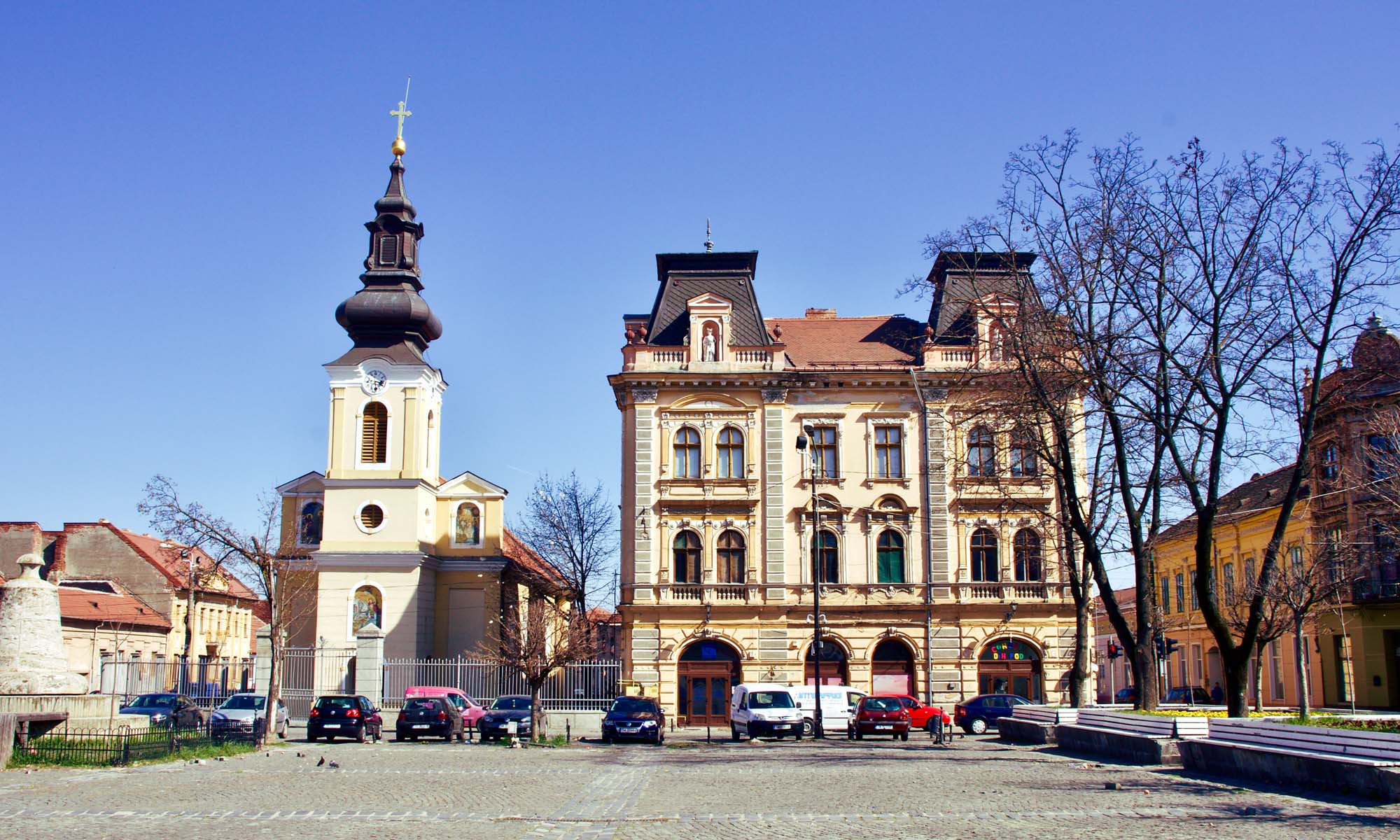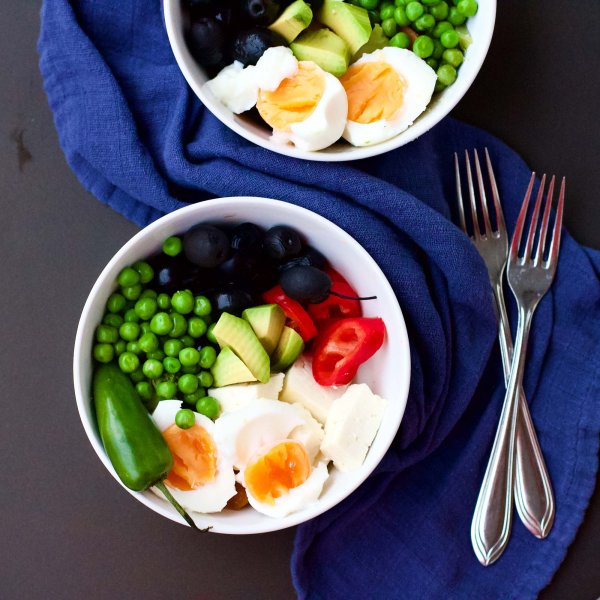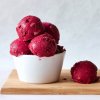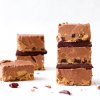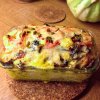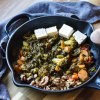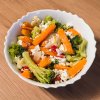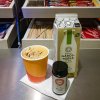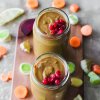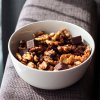JUMP TO
Do you feel tired when you travel? Do you often come back tired after an active vacation? These are my best tips for keeping your energy up when traveling, while keeping things on the healthy side.
I recently discovered my passion for traveling and iI can safely say that I’m a new person ever since. After an active vacation of just a few days, I feel more inspired and creative in everything that I do. Together with my wife, we like exploring big cities by foot, walking an average of 12-15 km/day. We like checking out every street, staying in the sun all day long, taking pictures and exploring the city like a local.
In this article, I want to share with you a few tips that I hope will help make your vacation more relaxing while keeping things on the healthy side. I’m talking about practical advice related to accommodation, food choices, how to have more energy, or how to make the best of traveling to a new city.
Make sure you sleep at night
Sleep is the way our bodies heal and recover so you definitely want to sleep every night. This is not so much about the length of your sleep, it’s the quality of the sleep that can make or break your health. You definitely don’t want to miss out on sleep, especially when you’re on vacation.
Since you may spend more energy on an active vacation compared to a few days at home, it’s even more important to recover for the next day. One trap people fall into when going on a vacation is they come back even more tired. And that’s not good for health.
I’m sure that if you’ll follow at least half of my tips related to sleep, you’ll end up feeling more relaxed during and after your vacation. Maybe you’ll even implement some of these tips when you’ll get back home.
I’ve put together a list with some of my best tips to help you get a good night’s sleep:
Hotel room features must have
- Select a hotel or an apartment in a quiet area of the city, far away from the main streets.
- Make sure you have a proper room temperature – air conditioning in the summer and heaters in the winter.
- Choose a clean and warm space. Even if it costs more, my advice is to choose something that will feel like home from the moment you step in.
- Make sure the beds are right for your sleeping habits – I enjoy sleeping on a hard mattress, but I also know people that prefer a softer mattress. Sometimes hotels have different bed types, so it’s worth asking before you arrive.
- Get a room on a high floor, away from elevators or other sources of noise.
- Sleeping with or without a pillow can make a big difference. Some hotels offer a “pillow menu” where they provide a selection of different pillows (from soft to hard, from small to big).
- Sleep in the dark – get a hotel room with dark shades, especially if the windows are facing the sunrise.
Food and sleep
- Don’t eat too much before bed as digestion can interfere with your sleep. You don’t want to be hungry, but there’s no point in making dinner the biggest meal of the day.
- Waking up to breakfast is the best way to make sure you’ll fall asleep just around midnight.
- Sometimes, if you’re stressed and can’t sleep, a quick snack with healthy carbs can put you right to sleep. This works best if you ate healthy and low-carb all day.
Sleep in natural materials
- Sleep in natural materials (cotton, linen) or better yet sleep naked.
- Sleeping in bed linen made from natural materials will help your body cool down during sleep.
- Don’t use tight clothes as these will inhibit peripheral circulation and your lymphatic system may suffer. Plus, you won’t be able to breathe in tight clothes and you’ll end-up with a poor quality sleep.
Screen time vs Sleep time
- Cut back on watching tv all night long. If you want an active vacation, you have to put Netflix away.
- Don’t use your phone in the dark – blue light, wireless signals, brain activity before bed, these are very good reasons to quit using your phone before sleep. Keep the phone in another room with the wifi off and I guarantee that you’ll sleep better.
- Switch off the wifi on your phone, tablet or laptop – you don’t want those silly notifications to put you out of sleep.
- Go to bed around midnight. This is one of the best ways to make sure you get a good night’s sleep.
- If you can’t sleep, don’t be tempted to use your phone. Instead, read a real book or listen to an audiobook.
More hotel room tips
- Since inside air tends to be way less healthy compared to outside air, you want to ventilate the room at least twice a day (morning and before bed).
- Leave the windows open when you’re not in the room. This way your room will be fully ventilated when you get back from the city.
- Choose a room with hardwood flooring instead of those carpeted rooms. The hard wood is a natural material that can be easily washed and vacuumed. Fully carpeted rooms will always draw dust into the carpets and hotels tend to clean these carpets with chemical solvents (toxins alert!).
- Generally speaking, the quality of the air will be better in a room that is big and furnished with natural materials.
Eat healthy food
In an active vacation, you probably want to experience the local cuisine, but eating only restaurant food for days in a row can be both expensive and unhealthy. Not to mention that eating too much food overall will cut your energy down and will also weaken your immune system.
One of the things I notice is people indulging in any type of food just because they’re on vacation. If something is new or different, it doesn’t automatically mean it’s also good for you. Unless you’re going to a Michelin Star restaurant every day, you better choose your food wisely.
Here are my tips for making healthy food choices while traveling:
Make it a priority to eat healthy
- Search online for organic shops and buy your food from there.
- Ask locals where you can find traditional markets with fresh food.
- It’s ok to get to a restaurant a few times, but making it a habit is detrimental for your health.
- Don’t be afraid to ask your waiter or the chef about the ingredients used or the way they’re cooking the food.
- Drink at least one big smoothie a day, but make it low-carb, use plenty of healthy fats and at least 5 different veggies.
- Eat fresh food, prepared as little as possible.
- Eat all kinds of plants (mostly vegetables) grown locally and in season.
- Eat healthy fats with every meal.
- If you’re feeling exhausted, eat more carbs to recover. But get your carbs from real foods (fruit, dried fruits, etc) not from candy and refined sugar.
- Eat less meat and more vegetarian food, with plenty of soluble fiber, enzymes, vitamins, and minerals.
- Following a low-carb, high fat, medium protein eating style will give you more energy overall, while keeping your immune system at rest.
- Try fasting in the morning – this means skipping breakfast and fasting for at least 12h, ideally 16-18h/day.
- Read the labels and use Google Translate to help you if you travel abroad.
Foods you can eat
- Freshly made smoothies with more veggies and less fruit – it pays off to get more veggies on board and it will still cost less compared to a restaurant meal.
- Fuel your day in the city with dried fruit (mango, coconut, dates, raisins, figs).
- Fresh fruits are always a great option.
- Raw nuts and seeds will provide you those healthy fats and some much-needed protein, plus vitamins, minerals and fiber.
- If you like cheese, make them part of your meals. Here are my favorite types of cheeses: brie, comte, cheddar, emmentaler, mozzarella, and parmesan. If you can find cheeses made from raw milk, that’s even better.
- Lightly cooked veggies like cauliflower, broccoli, potatoes, sweet potatoes, green peas, green beans.Veggies are a great way to get lots of nutrients into your system.
- Add at least one source of healthy fats to every meal (cheese, butter, olives, avocado, etc).
- Try going to smoothie bars; just make sure the places are clean and the ingredients fresh (organic is ideal).
- Try freshly made soups or cream soups, as they’re made from fresh plants and usually prepared on the same day. Avoid soups prepared with refined oils of any kind.
Put together creative meals
- Instead of going to a restaurant, surprise your partner with a meal in the park.
- Putting together very simple meals can be a fun activity – things boiled veggies, salads, eggs, creative plates of all kinds and colors.
- If you have a kitchenette in your room, this will make it very easy for you to prepare your own quick meals.
- Learn to eat food for fuel not because it’s there (sometimes you just need some olives or dried mango).
- Eat low-carb and stay away from processed foods, plus stay away from refined sugars and oils.
- Choose dried fruits instead of a classic dessert or a cake loaded with sugar.
- If you can cook at home, take some food with you for the road. Boiled veggies, boiled eggs or homemade salads work great as a walk-in-the-city meal.
- You can easily prepare a salad from a salad mix that you can buy in any supermarket.
- Always be prepared with paper plates and reusable tableware. This will make it easier for you to eat on the go.
Avoid these “foods”
- Avoid foods prepared with refined sugars and refined oils. This includes restaurant food cooked using refined oils and/or too much added sugar. If you’re not sure, ask your waiter how the food was prepared.
- Avoid eating too many products made from grains. This includes cereals, granola, bread, pasta, pastry, cakes, pizza, etc. Besides the fact that these products are highly processed, they will also add too many carbs to your meals.
- Stay away from junk foods and beverages – this includes sandwiches, candy, sugary desserts, pastries, pizza, soda, even burgers aren’t that healthy.
- Avoid products with added sugars or you’ll end-up with a sugar crash, less overall energy, poor sleep quality, bad moods, etc.
- Avoid foods with additives and preservatives.
- Avoid most sauces unless freshly made on location and without sugar, refined seed oils, additives, and preservatives.
- Stay away from fast food salads are they’re almost always made using low-quality ingredients and with cheap refined seed oils.
Ways to stay hydrated
- Drink plain water.
- Tea can be a great option, just make sure you don’t drink too much black tea.
- Avoid soda or beer as these will only dehydrate you, especially on a hot summer day.
- You can have coffee but not too much since it can dehydrate you.
- Avoid freshly made juices prepared from fruits. These are loaded with sugar (fructose = sugar in fruits) and come with no real nutrients but too many calories from sugar alone.
- Even sparkling water is not ok since it’s most likely made in a factory.
- When buying water, stay away from plastic recipients that were kept in the sun. Search for water bottles made from glass.
Get a room with a fridge
This applies mostly for staying in a hotel and it’s equally important for any travel (business travel, traveling with kids, active vacation, even all-inclusive type of vacation). Just make sure that your room comes with one of those mini-refrigerators, because this way you can buy and store your own food.
Having an in-room fridge is especially important in the summer, when the weather’s hot and real food can go bad pretty quickly. Take out from the fridge those beers and soda bottles, and put your own healthy food instead.
Foods that you can store in any hotel room mini-fridge:
- Cheeses
- Olives, Avocado
- Milk, kefir, yogurt
- Raw dairy, butter
- Fruits
- Veggies
- Smoothies
- Salads
- Leftovers
- Eggs (cooked or raw)
- Coconut milk/cream (opened)
- Nut butters (opened)
- Ice cream (please buy healthy low-carb ice-cream)
- Fermented foods like sauerkraut, pickles, kombucha
- Healthy oils: coconut oil, extra virgin olive oil, avocado oil
What I like to do is buy organic food from a food market and eat it in my room. You can buy all sorts of cheeses, different veggies, fruits and even frozen berries, avocado and extra virgin olive oil, and you can easily make yourself a salad on the go.
You can also carry with you an egg boiler or even a blender, preparing some fancy salads, smoothies, smoothie bowls, creams or simple desserts. Maybe another time I’ll tell you how I used a blender to make myself smoothies while staying in a hotel. That was quite an experience!
Buy yourself an expensive pair of running shoes
I used to wear sophisticated leather shoes and my wife was always on heels. That was until we discovered that we like to walk daily and we need to improve our walking stamina. Walking using inappropriate shoes can lead to severe back problems, imbalances in your muscles, even problems in your neck. Especially if you have weak muscles, walking with inadequate shoes will lead to problems pretty fast. The best way to prevent any injuries is to get the most expensive pair of running shoes you can buy.
Here’s why a good pair of running shoes is the best option for walking those long distances:
- Running shoes are designed with stability in mind, meaning they’ll help with your stability on those long walks.
- Your risk of injuries will decrease dramatically.
- You’ll be able to walk better, faster and using less energy.
- You’ll be less tired at the end of the day.
- You will recover faster.
- You won’t get any pain in the soles.
- You can easily walk on any type of terrain.
- Consider you’ll spend at least 10h/day in these shoes.
- Your feet will ventilate better compared to regular shoes.
- They will last you at least 6 months.
- I also recommend buying socks made from organic cotton (or wool for winter times) – these will let your feet breathe adding to a quick recovery after a long day.
Explore the city like a local
I enjoy exploring a city by foot and I believe this the best way I can get accustomed with the energy of the city, the locals, the architecture or just explore the things that a city has to offer. I believe in active vacations instead of guided tours and all-inclusive services. Every time I travel, I just want to dive into the culture and having a map of the city with me on my phone is a lifesaver.
Tips for exploring any city like a local
- You don’t need a printed map, so don’t spend your money on one.
- You don’t need expensive all-in-one passes with access to museums, busses, etc. You won’t have time for most of them, anyway.
- Familiarize yourself with the map of the city; it’s right there on your phone.
- Use Google Maps to search for streets, train stations, restaurants, shops, anything you might be interested in.
- Track your walking distance with an app like Run Keeper. This way you’ll know how long you can walk before you get tired, when to rest, what’s your rhythm and so on.
- Use Google Maps’s Directions feature to quickly find your way from one place to another.
- In most big cities around the world you can rent bikes, scooters or even small cars by the hour.
- If you drive a car, use an app like Waze to help you navigate the city like a local. This way you’ll get to use the best shortcuts and get to your destination in the shortest time possible.
- Use the map to find resting places, like parks, benches, etc and take a 10-20 min break every 1.5-2 hours of walking.
Don’t forget your camera
I enjoy taking pictures with my phone and my DSLR camera. Both of these devices are great for taking pictures and they act in very different ways. My DSLR is bigger and harder to carry around but takes great pictures. On the other hand, the phone is there all the time and ready to capture those instant moments.
Tips for taking great pictures in any city
- Install and test a few photography apps on your phone.
- Decide between shooting manual or full auto.
- Consider shooting RAW photos with your phone, this way you’ll have more control when editing the photos.
- Keep the phone charger or a battery pack with you all the time; the camera app will draw the battery fast.
- Keep a few memory cards for your DSLR, so you won’t run out of storage space.
- Protect your DSLR with a solid cover – streets can be crowded and your camera could get damaged if you don’t protect it at all times.
Water. Water. Water.
I quickly learned that if I want to have more energy all day long, it’s very important to have proper hydration. The easiest way to do this is to make sure I always have a bottle of water with me.
While I prefer a reusable water bottle made from glass, you can use any bottle you want as long as it’s filled with pure water. Plain water will aid to recovery by helping your maintain the balance of body fluids. If you feel you’re dehydrating, you can always add in some electrolytes, things like magnesium, potassium, sodium.
Takeaway
These rules are what works for me and my wife when traveling to a new city. Our goal is to explore the city, but we want to be in perfect shape during and after our vacation.
Following the rules above has proved a winner for us, and I really hope you’ll find some useful tips. Since we’re all different and we all have different needs and habits, you’ll know what works and what doesn’t work for you. Feel free to adapt my advice to your own needs and goals, and make sure to let me know what works for you.
What are your tips for keeping your energy up while traveling? What works for you? Share below
Related articles to help keep your energy up when traveling:
